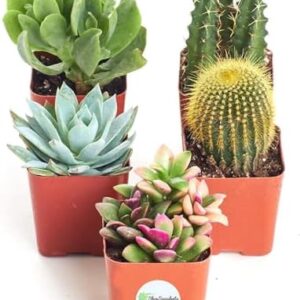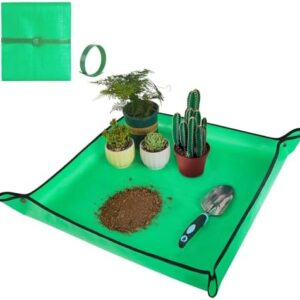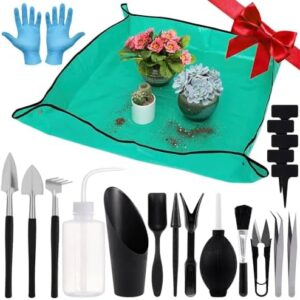Are you thinking about starting your own organic garden but not sure where to begin? Don’t worry, we’ve got you covered with 10 organic gardening tips for beginners to help you get started on your green thumb journey.
1. Start with the Right Location
The first tip for beginners is to choose the right location for your organic garden. Make sure to pick a spot that gets plenty of sunlight, has good soil drainage, and is easily accessible for watering and maintenance. Avoid areas that are prone to flooding or have poor soil quality.
2. Plan Your Garden Layout
Before you start planting, take some time to plan out your garden layout. Consider the size of your plants, their spacing requirements, and any companion planting options that can help promote healthy growth and deter pests. This will help you make the most of the space you have and ensure a successful harvest.
3. Invest in Quality Soil
One of the most important aspects of organic gardening is the soil. Invest in high-quality, organic soil that is rich in nutrients and free of pesticides or chemicals. You can also add compost or other natural fertilizers to improve the soil’s fertility and promote healthy plant growth.
4. Choose the Right Plants
When selecting plants for your organic garden, choose varieties that are well-suited to your climate and growing conditions. Consider starting with easy-to-grow plants such as tomatoes, lettuce, herbs, and peppers. These plants are beginner-friendly and can provide a bountiful harvest with minimal maintenance.
5. Water Wisely
Proper watering is essential for the health and growth of your plants. Water your garden early in the morning to minimize evaporation and prevent fungal diseases. Avoid overwatering, as this can lead to root rot and other issues. Instead, water deeply but infrequently to encourage strong root development.
6. Embrace Natural Pest Control Methods
Instead of relying on chemical pesticides, opt for natural pest control methods to protect your garden from unwanted visitors. Encourage beneficial insects like ladybugs and lacewings, use physical barriers such as row covers, or make your own organic pest repellents using ingredients like garlic, neem oil, or diatomaceous earth.
7. Mulch for Moisture Retention
Mulching is a great way to retain moisture in the soil, suppress weeds, and improve the overall health of your garden. Use organic mulch materials such as straw, leaves, or grass clippings to cover the soil around your plants. This will help regulate soil temperature, reduce water evaporation, and provide nutrients as the mulch breaks down.
8. Practice Crop Rotation
To prevent soil depletion and reduce the risk of disease, practice crop rotation in your garden. This involves planting different crops in the same area each year to avoid depleting specific nutrients or creating ideal conditions for pests and diseases. Rotate your crops annually to maintain a healthy, productive garden.
9. Compost Kitchen Scraps
Composting is a simple and eco-friendly way to reduce waste and enrich your soil with essential nutrients. Save kitchen scraps like fruit and vegetable peels, coffee grounds, and eggshells to create nutrient-rich compost for your garden. Mix your compost with soil or add it as a top dressing to nourish your plants naturally.
10. Be Patient and Enjoy the Process
Last but not least, remember to be patient and enjoy the process of organic gardening. Gardening is a learning experience, and it’s okay to make mistakes along the way. Take time to observe your plants, learn from your successes and failures, and savor the satisfaction of growing your own food in a sustainable, environmentally friendly way.
In conclusion, organic gardening is a rewarding and fulfilling hobby that allows you to connect with nature, reduce your environmental footprint, and enjoy the fruits of your labor. With these 10 tips for beginners, you’ll be well on your way to creating a thriving organic garden that nourishes both you and the planet. Happy gardening!






